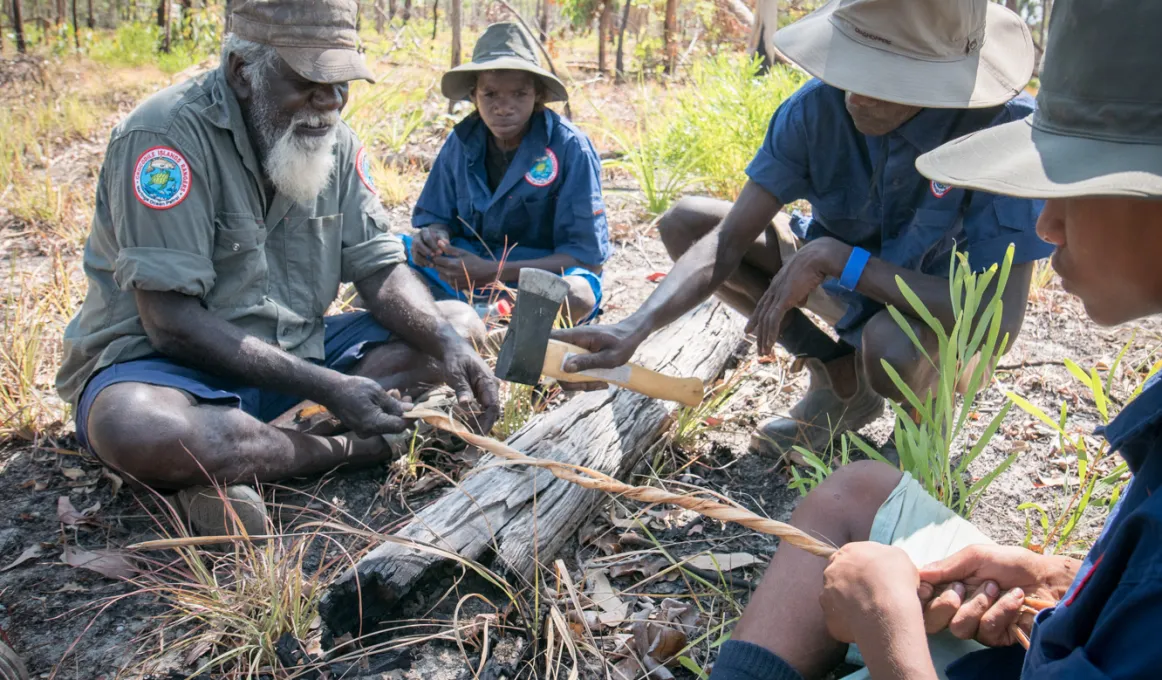2016 Indigenous Land Management Award: Crocodile Islands Rangers

Landcare champions, the Crocodile Islands Rangers have developed a strong relationship with Traditional Owners and the community of Milingimbi to keep the culture strong, engage the community in weed and pest management, and create a sanctuary for important bird species and turtles.
The Crocodile Islands Rangers (CIR) of north eastern Arnhem Land are Landcare champions, recently winning the Indigenous Land Management Award at the prestigious National Landcare Awards.
Simone McMonigal, the CIR Program Coordinator said the award recognised that the rangers and Traditional Owners have developed a strong relationship, govern their own program and work hard to meet the community’s needs.
“We incorporate cultural knowledge and requirements into our activities, as well as using local language in our printed materials,” Simone said.
Based in Milingimbi, the 10 full-time rangers are responsible for managing approximately 40,000 hectares of land, 200km of coastline and 6000km2 of sea country within Castlereagh Bay.
They engage in a wide range of activities, both for environmental monitoring, research and management, and also for cultural activities.
Twenty two year old Gerard Morgan, a ranger for three years, said it’s a privilege looking after land and sea country and keeping the culture strong.
“Being a ranger has opened my mind about caring for country,” Gerard said.
“I have learnt a lot about things - like weeds that are killing our country slowly, and knowing there are things out there like marine debris that is killing animals that we live off.”
Rangers also undertake a wide range of community assistance activities including sea rescues, firefighting, cyclone recovery, organising training, and providing assistance to help the community with their own fishing enterprise development.
George Milaypuma, a ranger for four years and a Cultural Advisor, said he feels good working on the country and the sea.
“There are many sacred sites in the ocean and on the land, and many ceremonies, and I can help look after these, by consulting with the right elders and Traditional Owners,” George said.
“I also help teach the young people, to give them more knowledge.”
The rangers run a Junior Ranger program, teaching young people modern land management skills as well as sharing traditional Indigenous Ecological Knowledge.
This transfer of knowledge to the next generation is critical to preserving an area of international conservation significance which hosts important migratory shorebird and seabird colonies and includes critical marine turtle nesting beaches.
“We helped the landowners make a Turtle Sanctuary on Gurriba Island and now there’s no hunting there,” George said.
Recognising it will take time, the rangers are determined to control non-native plants and animals on their remote islands.
“There are less cane toads on Milingimbi Island since we have been doing cane toad busts and trapping,” Gerard said.
Find out more
The Crocodile Islands Rangers are funded by the Australian Government, through the Indigenous Rangers - Working on Country program. This program creates employment, training and career pathways for Indigenous people in land and sea management.
More information is available at Crocodile Islands Rangers and at Landcare Australia and the 2016 National Landcare Awards.